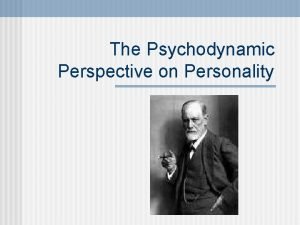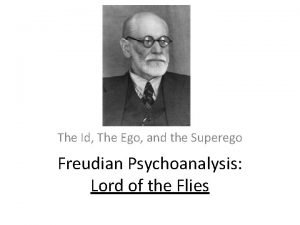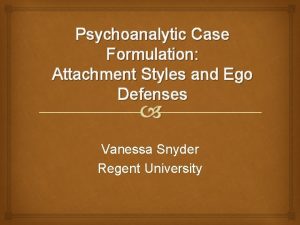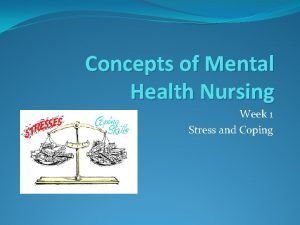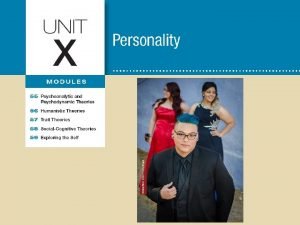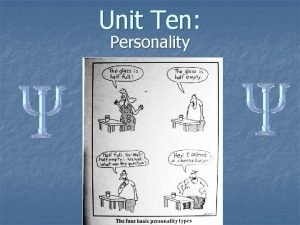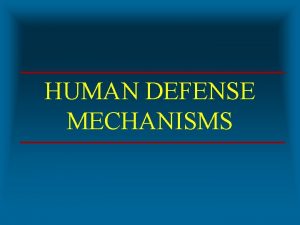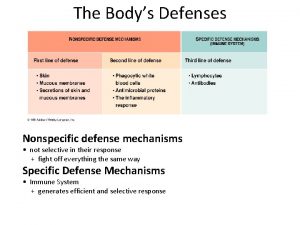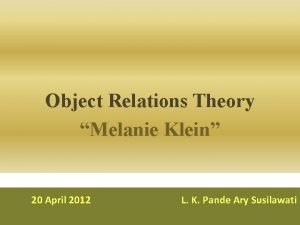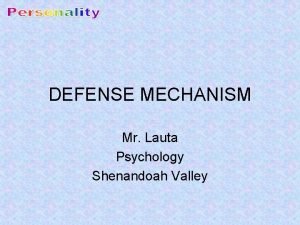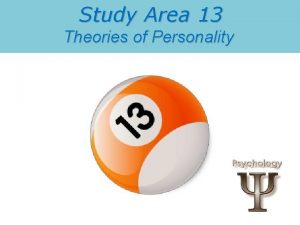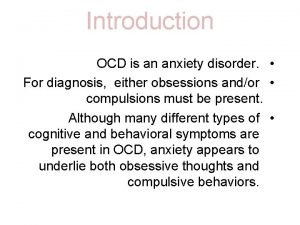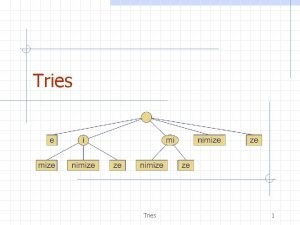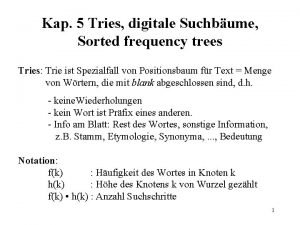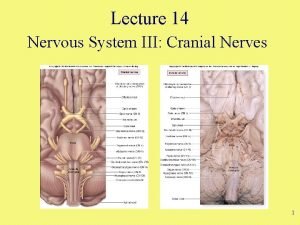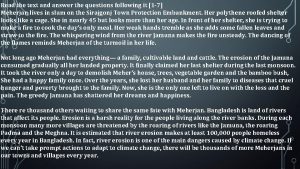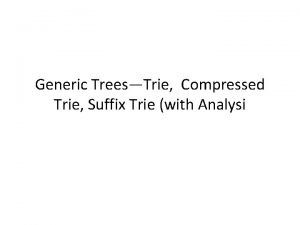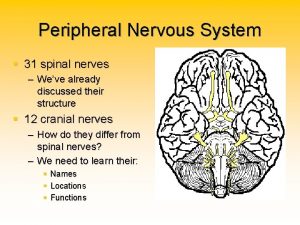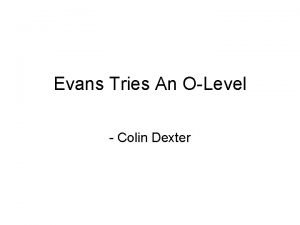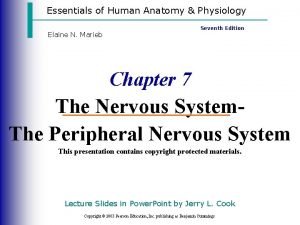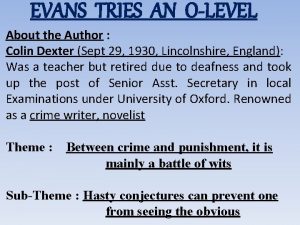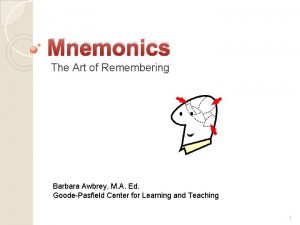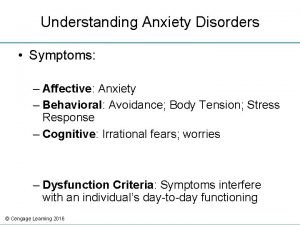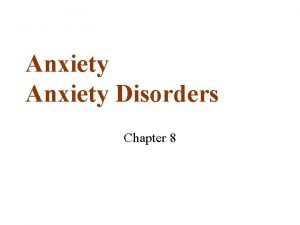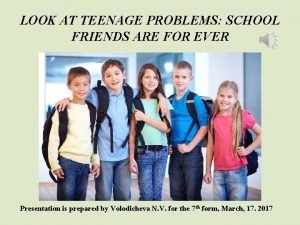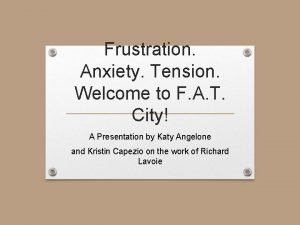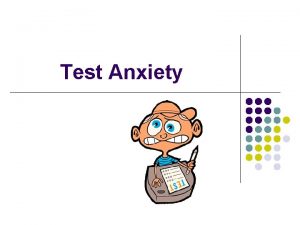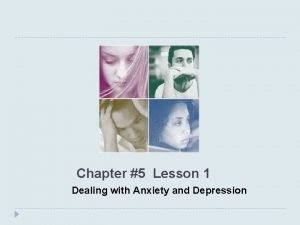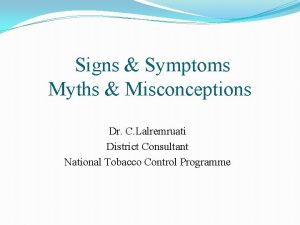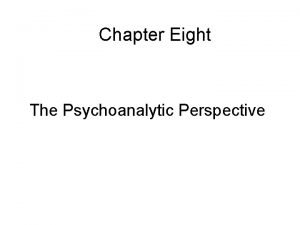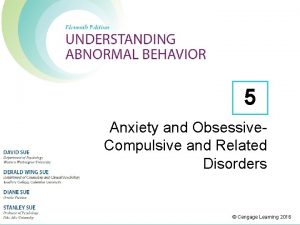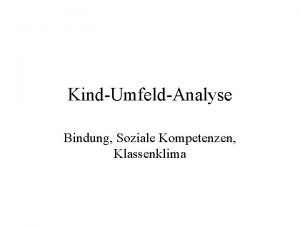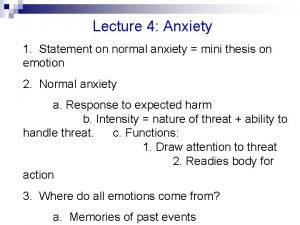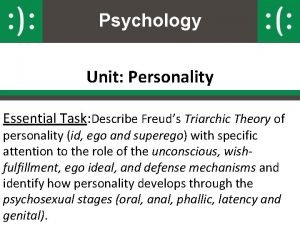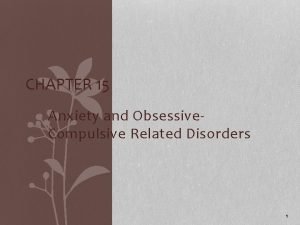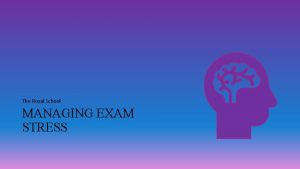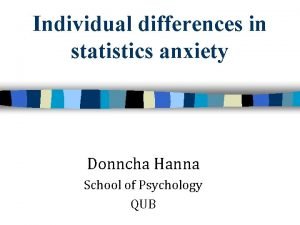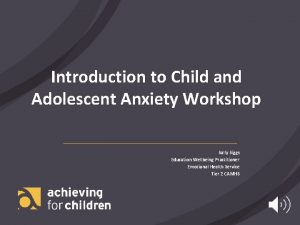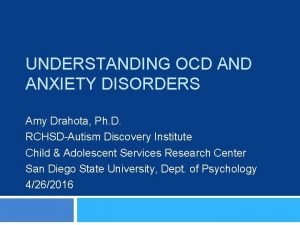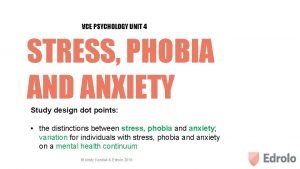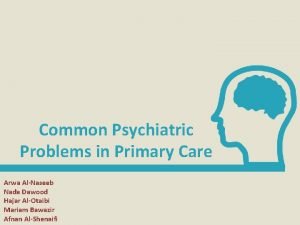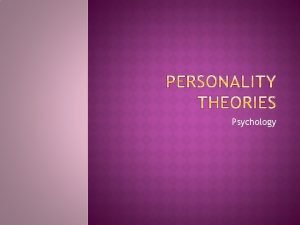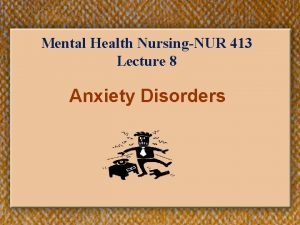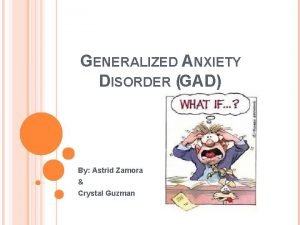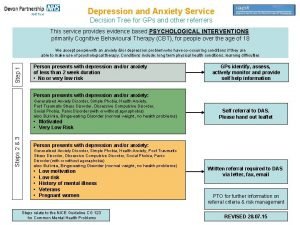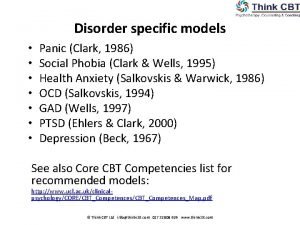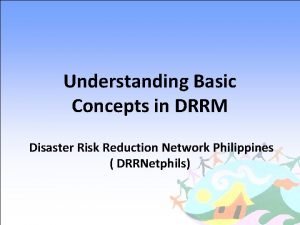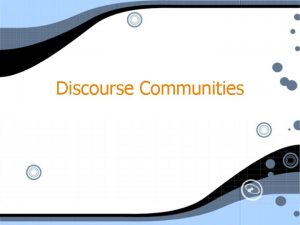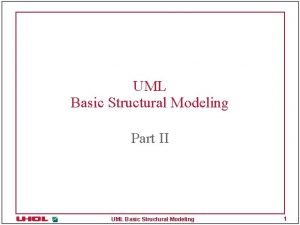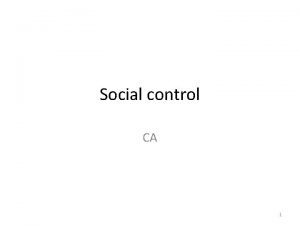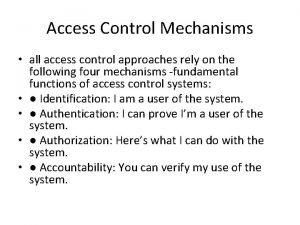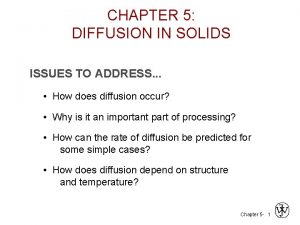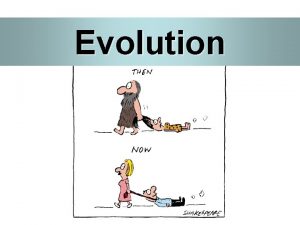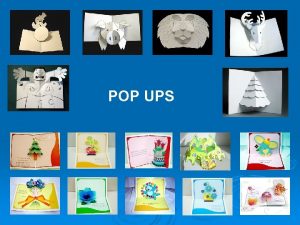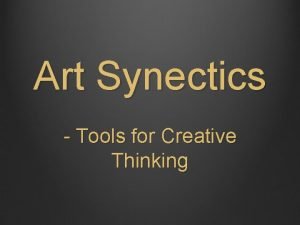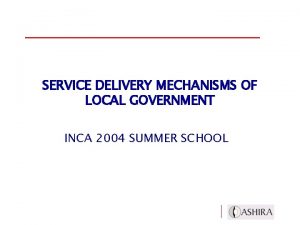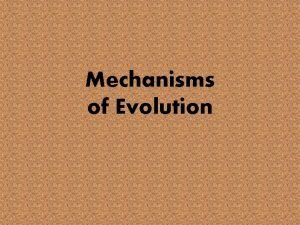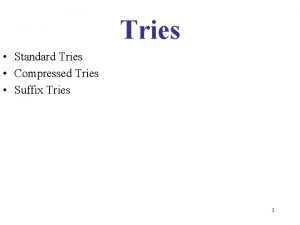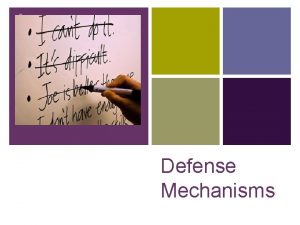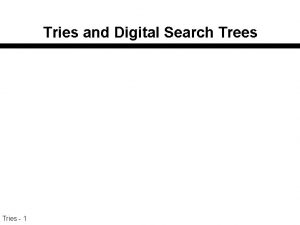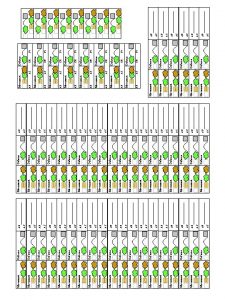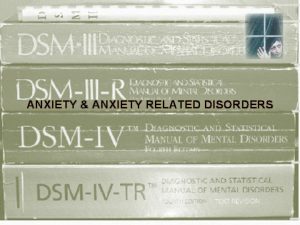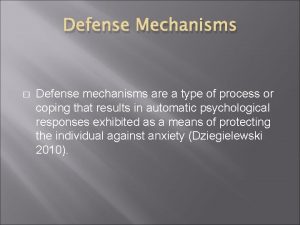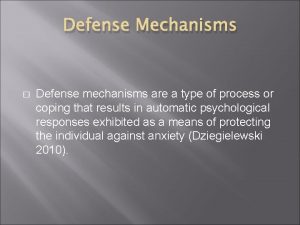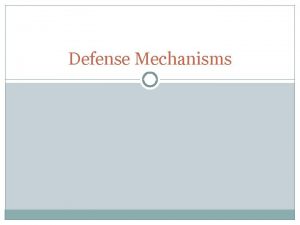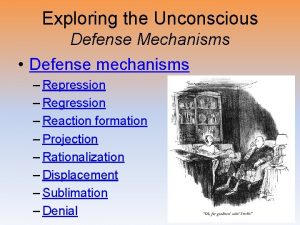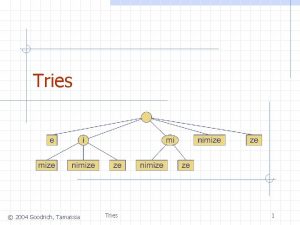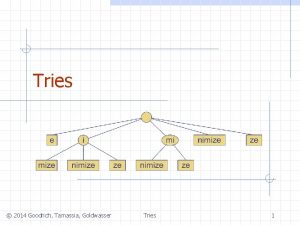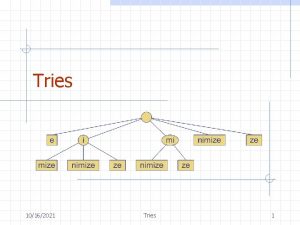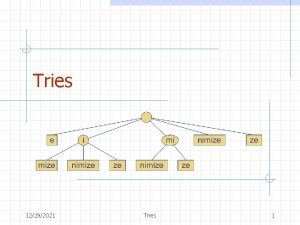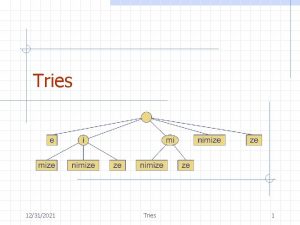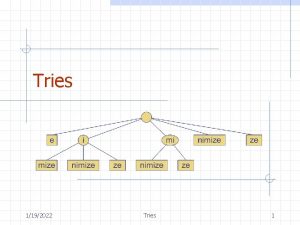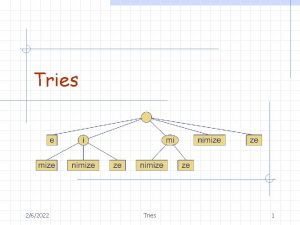Ego Id Defense Mechanisms Id Anxiety Ego tries











































































































































- Slides: 139


Ego Id

Defense Mechanisms Id

Anxiety • Ego tries to keep reality in check • Ego tries to keep the id, superego, and reality “happy” • The tools the ego uses to do this (and avoid anxiety) – Defense Mechanisms • Note: these are not “cures”, just Band-Aids

So far… • Denial • Repression • Reaction Formation


• “Why were you looking at her? !? !”

• “The teacher was not very good at getting me ready for this test”

• “All people are idiots”

• “Its your fault”

Projection • A person attributes unacceptable internal thoughts or feelings to other people or to the environment • Giveaway – do you see almost everyone the same way?



• “They were probably sour anyway”


• “She is not that great anyway!”


• “Its for his own good”


• “It doesn’t really matter – My wife doesn’t even wash the dishes” • “His wife is awful to him”

Rationalization • Ego misrepresents irrational behavior in order to make it appear rational and thus justifiable to others • Rationalizations are obvious • Person doing them really believes them


• “During the conflict we sustained minor causalities, while inflicting major causalities on the enemy”

• “We attempted to remove the blockage which likely caused discomfort. Unfortunately, the patient expired”

Intellectualization • Turn emotional issues into cold, intellectual, and analytical issues • Intellectual issues vs. emotional issues • Grandfather example

• “During the conflict we sustained minor causalities, while inflicting major causalities on the enemy”

• “During the bloody war, where many men were seriously wounded – 46 men were killed – they will not be coming home. We killed 204 of the men on the other side – they will not be going home to their families either. ”

• “We attempted to remove the blockage which likely caused discomfort. Unfortunately, the patient expired”

• ““We attempted to remove the blockage which likely caused Frank to feel great pain. Unfortunately, the Frank died during this operation. ”


• You get an F in this class! • You are mad at me! • You go home and. .

Hit a pillow

• You get an F in this class! • You are mad at me! • You go home and. .

Kick the dog!

• You get an F in this class! • You are mad at me! • You go home and. .

Yell at your mate!

Why?

Displacement • The expression of an impulse is redirected from a more threatening person or object to a less threatening one. • Can be turn against self


• “I’m giving you the silent treatment”

• “Be de bo bo do ba ba”

• Death row inmate

Regression • Reverting to immature and childlike patterns of behavior. • Alleviates anxiety by retreating to an earlier period in life



ID Aggression

ID Aggression Ego

ID Aggression Ego

Sublimation • “Good defense mechanism” • Person diverts impulses so that they may be expressed via socially approved thoughts and actions

Sublimation • Examples: • Artists • Childhood sports • Who are you attracted too?


Defense Mechanisms • • Denial Repression Reaction Formation Projection Rationalization Intellectualization Regression Sublimation

Lucy was upset when Alice, the new girl in school, started to hang around with her friends. Lucy was afraid that her friends were being stolen from her. She did not talk to Alice, and tried to insult her whenever possible. One of Lucy’s friends asked her why she did not like Alice. She responded, that Alice did not like her, she was stuck up, and not very friendly.


John was late for practice because he overslept. When asked by his coach the reason for his tardiness, he responded that he could not get a ride to practice.


MARY WOULD NOT BELIEVE THAT JIM WAS SEEING OTHER GIRLS. EVEN WHEN HER FRIEND SUE CALLD TO SAY SHE HAD BEEN OUT WITH HIM.


REGGIE WAS UPSET WHEN HE HEARD THE NAME THE PLAYER FROM THE OTHER TEAM CALLED HIM. HE CHANNELED HIS ANGER AND ON THE NEXT PLAY SACKED THE QUARTERBACK.


JANE WAS IN A HURRY TO GET TO WORK. SHE WAS GOING 90 M. P. H. WHEN THE HIGHWAY PATROLMAN STOPPED HER. AS HE APPROACHED THE CAR TO WRITE HER A TICKET, SHE STARTED TO CRY.


CLANCY WAS SO UPSET UPON HEARING THE NEWS OF HIS GIRLFRIEND’S BETRAYAL HE PUNCHED THE KITCHEN WALL AND BROKE HIS HAND.


Lou was out to make the football team and had an excellent chance of starting. Unfortunately, when the coach checked his grades, it was discovered that he had 4 F’s, and was ineligible. The coach asked him why he had wasted his time trying out for the team when his grades were so bad. He said that he wasn’t aware that he had done so poorly.




Mini Quiz • 1. Diana, a married woman, is contemplating having an affair with an attractive man in her department. How would Diana's ego likely respond? • a. It would encourage her to pursue the affair immediately. • b. It would object to the affair because it seems immoral. • c. It would object to the affair because it seems impractical. • d. It would make Diana feel guilty.

Mini Quiz • 2. The defense mechanism of __________ keeps forbidden thoughts, feelings, and impulses out of awareness by replacing them with their opposites. • a. parapraxis • b. projection • c. reaction formation • d. displacement

Mini Quiz • 3. In a successful joke, the forbidden impulse is • • a. disguised until the punch line. b. a result of too much labido. c. obvious. d. created by the super-ego.

Mini Quiz • 4. Trisha, who is on a diet, passes by a bakery and sees a chocolate cake in the window. She immediately wants to go in and get the cake but then realizes that eating the cake will only destroy her diet and feels guilty for even thinking about breaking her diet. Trisha is experiencing • • a. psychic conflict. b. delay of gratification. c. sublimation. d. reaction formation.

Mini Quiz • • • 5) This is mini quiz A) 4 B) 3 C) 5 D) 6



Freud is Dead

What happened next? • Neo-Freudians – People who continued to develop psychoanalytic theory • • Carl Jung Alfred Adler Karen Horney Erick Erikson

Carl Jung

Life of Jung • Child of a minister • Studied as a physician- psychiatrist • In 1907 he went to Vienna and met Freud. Became the first President of the International Psychoanalytic Society • Jung disagreed on several important points. And broke with him in 1913.

Major Differences • Personal unconscious and a "collective unconscious“ • Spiritual • Reduced emphasis on “sexual” instincts

The Psyche • The total personality • Works with “life process energy” – Similar to libido, but “sexual” energy is only one type of energy

Life Process Energy • Energy is created according to the principle of opposites • Energy is created through conflict

Love Sex Ego Hate Abstinence Shadow

Life Process Energy • Principle of equivalence – For any given quantity of energy expended in brining about a certain condition, an equal quantity of the same energy will be altered elsewhere

Increase Work Can’t express sexual desire CS Decrease Spiritual Expressed in the UCS

Life Process Energy • The principle of entropy – Elements of unequal strength will seek equilibrium

Outgoing Becomes board Life of the party” Tries to find meaning Becomes a more serious student One-sided development creates conflict – that we try to resolve

Parts of The Psyche • Ego • Contains CS perceptions, memories, thoughts, and feelings • Ego “unites” these elements • Gives a sense of unity and identity • Similar to Mc. Adam’s Level III

Parts of The Psyche • Personal Unconscious • Consists of all forgotten experiences • Perhaps repressed or simply too weak to be CS • Can be accessed by various means

Parts of The Psyche • Collective Unconscious • “A deposit of world processes embedded in the structure of the brain. . . a sort of timeless and eternal world-image. . . ” • The latent memories of our human and prehuman ancestry – Contains various archetypes

Archetypes • Themes that have existed in all cultures throughout history • Universal due to our common evolution and brain structure

Archetypes • Example: • People tend to respond to ambiguous and threatening situations in a particular way. .

With an all-powerful being that we call God Thus, God is a universal symbol in our collective unconscious

Archetypes • Persona – “Social Archetype” • The persona is the public face (mask) one presents to the world for everyone else to see. • Everyone has one (that’s why it’s an archetype) to deal with the world – Can be negative if doesn’t fit with “true self”

Archetypes • The Shadow – “Evil Side” • The dark side of your personality that contains the animal (and sexual) instincts. • It is the opposite of the ego – It contains what our ego might reject • Sadistic impulses • Unacceptable sexual impulses • Aggressive impulses

Archetypes • The Shadow As an archetype the importance of the shadow is seen in its symbolic representation by devils, demons, and evil spirits.

Archetypes • The Anima – A man’s “feminine” side • Predisposes man to understand the nature of woman • Serves as the sentimental inner face of the rational male persona • Pros: Intuitive, warm, better understanding of feelings • Cons: moody, “catty”, etc.

Archetypes • The Animus – A woman’s “masculine” side • Predisposes women to understand the nature of man • Serves as the rational inner face of the sentimental female persona • Pros: Reason and logic • Cons: “. . . harping on some irrelevant weak points and making it into the main point. . . “

Archetypes • The Self – A “potential” archetype in all of us • Represents a goal • Is achieved by exploring the UCS parts of psyche and learning more about these parts

Archetypes • The Self • Understanding the psyche as a whole • Self provides stability and balance to the psyche

Jung thought the “self” was symbolically expressed in mandalas (magic circles)

Outer World Persona Consciousness Personal Collective Ego Self Shadow Animus - Anima Inner World Consciousness Unconscious

Outer World Persona Consciousness Personal Collective Ego Self Shadow Animus - Anima Inner World Consciousness Unconscious

Dreams • Carl Jung believed a dreams content uses symbolic language • He proposed that a dream expresses collective unconscious memories and instincts shared by all people. • These are basic ideas that are themselves symbols.

Dreams • I was riding in a car. The car stooped near this other vehicle from which a person came out and shot the trunk. It was clear in my dream that this was a robbery. Later, I saw myself as a prisoner on the back of a car shoving coin from a box. After all this, I saw my body flying away and I was trying to land on a hill but there was a lot of them and many of them were marked at the pick. I was afraid to land because some of them had traps.

Group Activity • Discuss a single dream – what do you think it means? • “Dreamscape” • Symbols

Question: Are you looking for quick and easy answers to the meaning of your dreams ? If so, then do I have great news for you. . . "This Is EXACTLY What a Ph. D in Psychology Does When He Needs 'Quick and Easy' Answers To His Dreams. . . And YOU Can Too!" Are you seeking answers from your dreams? Do they puzzle you? Would you like easy, practical, and specific help to understand them using your own computer?

Sound familiar? Personality Analysis based on the Draw-a-Person-Test Analysis by: Patrick Markey Analysis of: Anonymous Personality Profile: 241 -56 -873 -BC You enjoy change and variety in your life, but do not like to have things change too drastically. You are fairly ambitious but sometimes worry if you are making the right choices in your life. Sometimes you are insecure, but you don't think that other people realize this. You really value others' opinions and strive to obtain others' approval. You think a lot about your personal relationships because they are very important to you.



Alfred Adler

Life of Adler • Born in Vienna in 1870 • Third of seven children • As a child very sick • Work extremely hard, apparently in an effort to compensate for his initial weakness

Life of Adler • Received his medical degree • In 1901 meet Freud • In 1910 became president of the Vienna Psychoanalytic Society • In 1911 resigned and started his own society • Died in 1937

Individual Psychology • Emphasizes the importance of considering the whole person • Teleological Position – Behavior is influenced by future goals • Ultimate goal is Superiority

Do you feel inferior?

Inferiority • What is it like to be a child? • Organ inferiority – What, as you child, you felt was your weakest attribute – As an adult you will strive to overcome this • e. g. , an academic, a runner, etc.

Feelings of Inferiority

Two basic ways to deal with feelings of inferiority Striving for superiority to attain completion Feelings of Inferiority Striving for personal superiority

Striving for Personal Superiority • Overcome by dominating and exploiting others • Others are seen as obstacles • Likely leads to neurotic behavior

Striving for Superiority to Attain Completion • Overcome by moving toward self perfection and completion • Always try to improve self • Do this through social interests – Cooperation with others that helps one attain own goals

The path is largely determined in the first five years of life Striving for superiority to attain completion Feelings of Inferiority Striving for personal superiority

Birth Order • • First born Middle child Last born Only child • Each one has unique environments that they are exposed too

Group Activity • Discuss your birth order and the birth order of siblings • Can you come up with personality “types” that you think are related to these orders? • What in the environment would cause these “types” to come about?

Birth Order First Born At the start was the center of attention. The “queen” of the house

Birth Order First Born “Dethroned monarch” Forced to share parental affection If parents have prepared child – will deal better with this change

Birth Order First Born Understands the importance of power Highly supportive of authorities Conservative and conforming Will attempt to regain “power” later in life (inferiority)

Birth Order Middle Children Views older child as a competitor

Birth Order Middle Children Views older child as a competitor If older child is supportive of younger attempts to excel, healthy development is more likely

Birth Order Middle Children Views older child as a competitor If older child is supportive of younger attempts to excel, healthy development is more likely If older is not supportive (mean), middle child might always set unrealistically high goals (ensuring failure)

Birth Order Last born “Baby” – tends to get most attention

Birth Order Last born If parents spoil child may be at risk for being excessively dependent on others for support and protection Wants to excel, but ultimately fails

Birth Order Only Children No siblings so is likely to be the center of attention

Birth Order Only Children If overly pampered may experience difficulty later in life when he/she learns that they are not universally admired.

Evidence • First born – Feel a loss of power; spend their lives attempting to regain this power through outstanding achievement • Negative correlations between birth order and intellectual performance

Evidence • First born children are overrepresented among • • College students Graduate students Women doctors University faculty World Leaders Members of the U. S. Congress United States presidents – Not among unsuccessful presidential candidates

Evidence • First born – Feel a loss of power; spend their lives attempting to regain this power through outstanding achievement • More likely to challenge “status quo” – “Born to rebel” – Students arrested for civil disobedience are more likely to be first borns

Evidence • First born – Feel a loss of power; spend their lives attempting to regain this power through outstanding achievement • More likely to be Type A – Excessive competitive drive – Strong time urgency – Always try to do more!

Evidence • Youngest child – More likely to be pampered; at risk for being dependent on others • More likely to be alcoholics if they lack social support

The path is largely determined in the first five years of life Striving for superiority to attain completion Feelings of Inferiority Striving for personal superiority
 Ego defense mechanisms in lord of the flies
Ego defense mechanisms in lord of the flies Is personality innate or learned
Is personality innate or learned Superego definition psychology
Superego definition psychology Psychodynamic
Psychodynamic Ego defense mechanisms in lord of the flies
Ego defense mechanisms in lord of the flies Secure attachment style
Secure attachment style The id operates on the ________ principle.
The id operates on the ________ principle. Defense mechanism mature
Defense mechanism mature Freud theories
Freud theories How do sponges protect themselves
How do sponges protect themselves Defense mechanisms nursing
Defense mechanisms nursing The psychodynamic theory
The psychodynamic theory Castration
Castration Psychoanalytic theory defense mechanisms
Psychoanalytic theory defense mechanisms Anal fixation
Anal fixation Defense mechanisms nursing
Defense mechanisms nursing Example of regression defense mechanism
Example of regression defense mechanism Categories of defense mechanisms
Categories of defense mechanisms What are the first line of defense
What are the first line of defense Psychic defense mechanisms klein
Psychic defense mechanisms klein Psychoanalysis psychology example
Psychoanalysis psychology example Anna freud defense mechanisms
Anna freud defense mechanisms Sweet lemon rationalization
Sweet lemon rationalization Reciprocal determinism
Reciprocal determinism Defense mechanisms nursing
Defense mechanisms nursing Ocd ego syntonic
Ocd ego syntonic Ego-dystonic vs ego-syntonic
Ego-dystonic vs ego-syntonic Ego superego id
Ego superego id Standard tries
Standard tries 5 tries
5 tries Old opie cranial nerves
Old opie cranial nerves Meherjan lives in a slum
Meherjan lives in a slum Ali ahmed is a mathematics professor who tries to involve
Ali ahmed is a mathematics professor who tries to involve Compressed trie implementation
Compressed trie implementation Old opie occasionally tries
Old opie occasionally tries Introduction of chapter evans tries an o level
Introduction of chapter evans tries an o level Aunt alexandra tries to scold atticus for allowing
Aunt alexandra tries to scold atticus for allowing Cranial nerve number face
Cranial nerve number face Evans tries an o level author
Evans tries an o level author Old opie occasionally tries
Old opie occasionally tries Explanation of anxiety disorder
Explanation of anxiety disorder Panic disorder icd 10
Panic disorder icd 10 Hildegard peplau levels of anxiety
Hildegard peplau levels of anxiety Teenagers anxiety friend
Teenagers anxiety friend Sadie is so fearful of being overwhelmed by anxiety
Sadie is so fearful of being overwhelmed by anxiety Hamilton anxiety rating scale
Hamilton anxiety rating scale Anxiety meaning
Anxiety meaning Children who release unexpressed anger
Children who release unexpressed anger Chapter 8 managing stress and anxiety
Chapter 8 managing stress and anxiety Test anxiety prayer
Test anxiety prayer Agoraphobia vs social anxiety
Agoraphobia vs social anxiety Chapter 18 managing anxiety
Chapter 18 managing anxiety Levels of anxiety nursing
Levels of anxiety nursing What is anxiety examples
What is anxiety examples Crisis development behaviour levels
Crisis development behaviour levels Frustration anxiety and tension
Frustration anxiety and tension Define neurotic
Define neurotic Hydroxyzine pam 50 mg cap for anxiety
Hydroxyzine pam 50 mg cap for anxiety Exam anxiety symptoms
Exam anxiety symptoms Stai adalah
Stai adalah Chapter 5 lesson 1 dealing with anxiety and depression
Chapter 5 lesson 1 dealing with anxiety and depression Yadasentience
Yadasentience Palpitation
Palpitation Anxiety in the heart of man causes depression
Anxiety in the heart of man causes depression Tips anxiety
Tips anxiety Neurotic anxiety example
Neurotic anxiety example Multipath model of anxiety disorders
Multipath model of anxiety disorders Separation anxiety test
Separation anxiety test Free floating anxiety
Free floating anxiety Warning signs of anxiety
Warning signs of anxiety Peter de maria
Peter de maria Oedipus complex
Oedipus complex School anxiety symptoms
School anxiety symptoms Anxiety hypothesis examples
Anxiety hypothesis examples Mecbal
Mecbal I'm a perfect example of someone who has math anxiety
I'm a perfect example of someone who has math anxiety Grief nursing diagnosis
Grief nursing diagnosis Mr fisc anxiety
Mr fisc anxiety Status anxiety
Status anxiety Chapter 5 lesson 1 dealing with anxiety and depression
Chapter 5 lesson 1 dealing with anxiety and depression Anxiety disorders def
Anxiety disorders def Chapter 15 anxiety and obsessive-compulsive disorders
Chapter 15 anxiety and obsessive-compulsive disorders Anxiety symptoms
Anxiety symptoms Pie nursing documentation example
Pie nursing documentation example University of wisconsin integrative medicine anxiety
University of wisconsin integrative medicine anxiety Anxiety lan chhuah dan
Anxiety lan chhuah dan Anxiety meaning
Anxiety meaning Anxiety explanation
Anxiety explanation Igor areh
Igor areh Explanation of anxiety disorder
Explanation of anxiety disorder Anxiety attack
Anxiety attack Auditory learner
Auditory learner Ocd behaviors
Ocd behaviors Edrolo
Edrolo Generalized anxiety disorder dsm 5
Generalized anxiety disorder dsm 5 Neurotic behavior
Neurotic behavior Examples of generalized anxiety disorder
Examples of generalized anxiety disorder Anxiety explanation
Anxiety explanation Anxiety explanation
Anxiety explanation Agoraphobia vs social phobia
Agoraphobia vs social phobia Test anxiety essay
Test anxiety essay Caregiver anxiety
Caregiver anxiety Switching antidepressants chart
Switching antidepressants chart Examples of generalized anxiety disorder
Examples of generalized anxiety disorder Stress anxiety depression
Stress anxiety depression Anxiety decision tree
Anxiety decision tree Panic cycle clark
Panic cycle clark Relaxation techniques test anxiety
Relaxation techniques test anxiety Rate mechanisms
Rate mechanisms Pay per use monitor
Pay per use monitor National mechanism for reporting and follow-up
National mechanism for reporting and follow-up Basic mechanisms underlying seizures and epilepsy
Basic mechanisms underlying seizures and epilepsy Drrm concepts
Drrm concepts Transport mechanism
Transport mechanism Lexis in a discourse community
Lexis in a discourse community Basic structural modeling in uml
Basic structural modeling in uml Formal social control
Formal social control Security services and mechanisms in cryptography
Security services and mechanisms in cryptography Mechanisms of hypothalamic control over endocrine function
Mechanisms of hypothalamic control over endocrine function Access control mechanism in networking
Access control mechanism in networking Chapter 15 microbial mechanisms of pathogenicity
Chapter 15 microbial mechanisms of pathogenicity Provider payment mechanisms
Provider payment mechanisms Countercurrent exchange thermoregulation
Countercurrent exchange thermoregulation Ready made environment in cloud computing
Ready made environment in cloud computing Technology transfer mechanisms
Technology transfer mechanisms Strengthening mechanisms
Strengthening mechanisms Conduction heat loss newborn
Conduction heat loss newborn An fcc iron-carbon alloy initially containing
An fcc iron-carbon alloy initially containing Mechanisms of evolution
Mechanisms of evolution Negative feedback in communication
Negative feedback in communication Parallel slide mechanisms pop-up
Parallel slide mechanisms pop-up Chapter 15 microbial mechanisms of pathogenicity
Chapter 15 microbial mechanisms of pathogenicity Art synetics
Art synetics Negative feedback and body temperature regulation
Negative feedback and body temperature regulation Chapter 11 health vocabulary
Chapter 11 health vocabulary Introduction to cryptography and network security
Introduction to cryptography and network security Lever linkage mechanisms
Lever linkage mechanisms Internal service delivery mechanisms
Internal service delivery mechanisms Mechanism of action of asprin
Mechanism of action of asprin Mechanisms of evolution
Mechanisms of evolution



